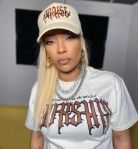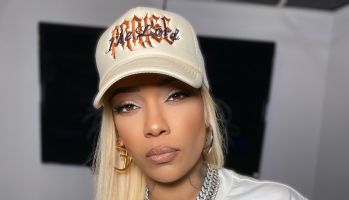Hillary Clinton, the Democratic presidential frontrunner, has promised to revitalize historically black colleges if she is elected to the White House.
“We’re going to work closely with (HBCUs) … because they serve some of America’s brightest students, who need the most support and too often have gotten the least of it,” Clinton wrote in a position paper.
Clinton’s plan for financing education includes a $25 billion fund to support private nonprofit schools that serve low and middle-income students, which includes HBCUs.
According to a September 2014 policy paper from the University of Pennsylvania, about 28,000 HBCU students were unable to cover their tuition costs.
Clinton recently visited Texas Southern University in Houston to tout her plan, and her husband, former President Bill Clinton, rallied supporters at Paul Quinn College in Dallas.
Meanwhile, Sen. Bernie Sanders (I-VT) held a packed rally at Morehouse College in Atlanta last month that 5,000 people attended. Sanders is trying hard to court Black voters. He knows Clinton has broad support in the African-American community but he believes he can galvanize young African-Americans and challenge Clinton for the Democratic nomination.
On Tuesday, both Clinton and Sanders will continue their outreach to Black voters in Michigan and Mississippi, where both states will hold primaries.
But are Clinton and Sanders’ efforts regarding HBCU’s enough?
Some Black HBCU presidents have argued that President Barack Obama’s policies have focused too heavily on community colleges and not enough on historically black colleges.
One college administrator who has worked closely with HBCUs for the past 20 years says Clinton and Sanders’ plan to streamline student loan rates and rearrange payment options is a good start, but doesn’t go far enough.
“Bachelor level degrees need to be increased if we’re to meet Obama’s ambitious but needed 2020 goals and that includes strengthening and empowering HBCUs,” the administrator said.
“That could include restoring the award amount of the Pell Grant to the 2011 level (a little over $5700/semester compared with $4700/semester currently), decreasing the amount of interest on the Plus loans, restoring the tens of millions in funding that’ve been cut from the Obama Dept. of Education, and directing the Dept. of Education to reconsider the nuances of HBCUs and their unique student populations,” he said.
Meanwhile, Rep. James Clyburn, a Democrat from South Carolina who endorsed Clinton, said Sanders’ controversial idea for free public colleges would ruin historically Black colleges.
“If you say that you’re going to have college — free two-year college — among public institutions, why would a student go to an HBCU, most of which are private institutions,” Clyburn told reporters. “What will happen is these HBCUs will all close down all across America because they would not be able to afford to stay open.”
In the last two years, legislators in North Carolina and South Carolina endorsed bills calling for the closure of Elizabeth City State University and South Carolina State University, two historically Black colleges.
Eleven Black colleges have closed in recent years, including Western College in Kansas; Mary Holmes College in Jacksonville, Mississippi; Leland University in Louisiana and Kittrell College in North Carolina.
Bill Murrain, a former civil rights attorney and law professor at Morehouse College, said he is not a proponent of free college education.
He said the Democratic presidential candidates should push for capping loan repayments so that students should not have to pay more than 15% of wages in loan repayment.
Murrain, who recently stepped down after completing 23 years of service as a Trustee at Oakwood University, a historically Black college Huntsville, Alabama, also said HBCUs need broad support.
“Create a fellowship that would support faculty from HBCUs, who are generally poorly paid as compared to the broader college faculty community, a fund which would enable them to pursue advanced degrees,” he added.
Black colleges are facing financial hardships, declining enrollment and fiscal mismanagement. Fewer than 15 percent of Black college students today attend historically Black institutions.
Let’s hope the Democratic presidential candidates are offering real solutions. The survival of Black colleges is at stake.
What do you think?
Like BlackAmericaWeb.com on Facebook. Follow us on Twitter.
















